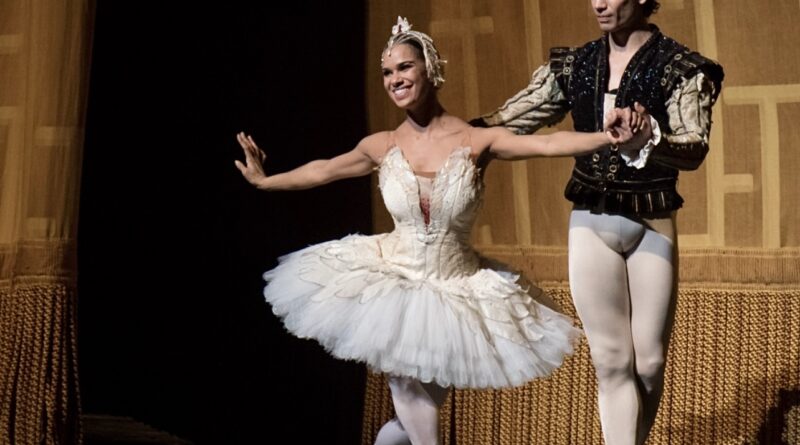Misty Copeland Discusses Trauma Black Ballerinas Face
by Stacy Jackson
March 25, 2024
Copeland said she thinks about the generational trauma for Black ballerinas that comes with lead roles like hers in “Swan Lake.”
Trailblazing ballerina Misty Copeland continues to be a voice for Black and brown ballerinas. The professional dancer recently got candid about being the sole Black dancer gracing studio spaces and stages throughout her career.
During a March 21 episode of Who’s Talking to Chris Wallace? Copeland, who spent the first decade of her professional career as the only Black woman with the American Ballet Theatre, said, “There were times that I was not cast in certain roles because I would stand out too much and kind of ruin the aesthetic, especially if it was a performance that was being filmed.”
She specifically recalled how she stood out among the other dancers, especially when everyone was pretty much wearing pink-toned tights.
Her groundbreaking portrayal as American Ballet Theatre’s first Black “Odette/Odile” in Swan Lake carried immense weight after she landed the lead role in 2014. “I think about this kind of generational trauma for Black dancers that comes with that role,” Copeland said.
Being cast in that role accumulated mixed opinions as the swans were typically white for many decades and “not a role that can be played by a Black or brown woman.” The ballerina shared that she worried about the appeal of her “artistic excellence” and how it could affect the role ever being given to another Black dancer at the company.
“That was something that weighed on me leading up to that first performance,” she admitted.
Copeland, who has also been referred to as the “Jackie Robinson of ballet,” feels she has brought herself to roles like in Swan Lake and made them her own. However, her fame in the industry was still met with pressures. “They make you lighten your skin,” she said. “I had serious conversations with the artistic staff of ABT and our hair and makeup department.” Those conversations questioned why the common “matte” look had to equate to “white.”
The notable dancer has established several initiatives to evolve the conversation and move the ballet world forward in its diversity efforts.
In 2023, Copeland launched her “MakeAPointe petition in an effort to encourage Apple and the Unicode Consortium to expand its skin tone options for the pointe shoe emoji. The campaign aimed to ensure the art of ballet celebrated every dancer’s “story and shade.” She also founded her “Be Bold” initiative in 2022 for Black and Latino students hosted at the Boys and Girls Clubs in New York City, an after-school dance program that provides ballet and music training, health education, tutoring, and mentorship.
She recognized that progress goes beyond being “the first” and acknowledged that other Black women have also accomplished incredible things in the industry.
The full interview with Copeland is available on Apple TV+, Prime Video, and Max.

